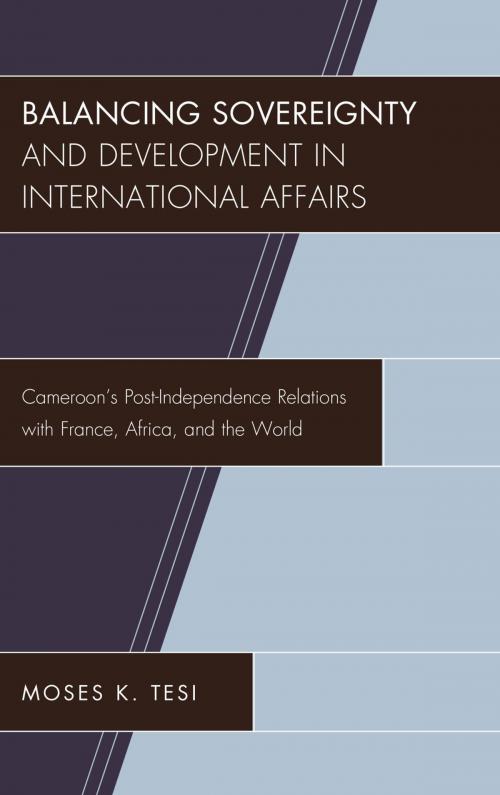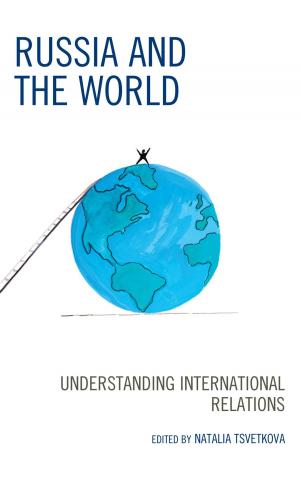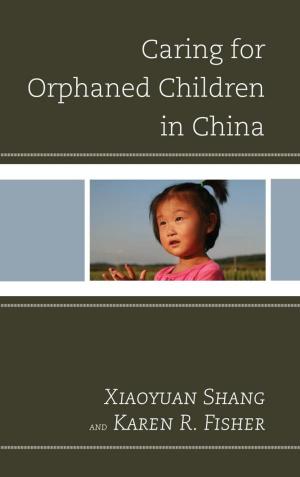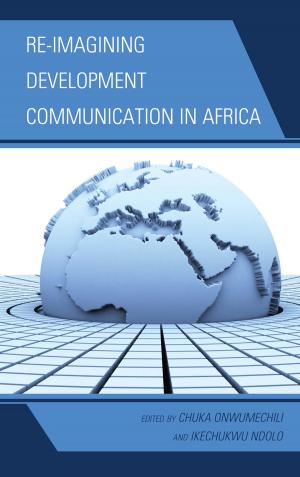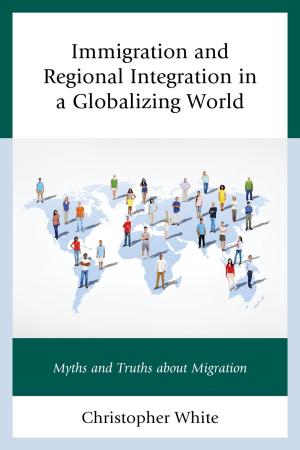Balancing Sovereignty and Development in International Affairs
Cameroon's Post-Independence Relations with France, Africa, and the World
Nonfiction, Social & Cultural Studies, Political Science, International, International Relations| Author: | Moses K. Tesi | ISBN: | 9781498530644 |
| Publisher: | Lexington Books | Publication: | August 15, 2017 |
| Imprint: | Lexington Books | Language: | English |
| Author: | Moses K. Tesi |
| ISBN: | 9781498530644 |
| Publisher: | Lexington Books |
| Publication: | August 15, 2017 |
| Imprint: | Lexington Books |
| Language: | English |
Balancing Sovereignty and Development in International Affairs is about Cameroon, a minor power in world affairs, and her foreign policy and international relations, especially as she deals with major powers, in this case, France. It emphasizes Cameroon’s economic and political relations with France, her relations with Francophone Africa, Anglophone Nigeria during the Nigerian Civil War of 1967–1970, the hot button issues of African liberation, and the development challenges that she faced.
development and sovereignty. It also investigates and sheds light on some conventional views about Cameroon’s relations with France—the view that Cameroon is a French puppet. The above questions are investigated within the theoretical framework of dominant-dependent- compliant behavior in world politics. Put differently, as a minor partner in her relations with France, was Cameroon being unduly exploited to France’s benefits or not? If not, what were Cameroon’s benefits in the relationship? And if so, what were the benefits to France?
Part One of the book discusses the historical origin of the modern Cameroonian state, the domestic context of its foreign policy, post-independence politics, and challenges associated with nation-building, national independence, domestic security, and economic development, that underlay the country’s world view and guided her international behavior. This part also analyzes Cameroon's economic relations with France focusing on trade, investments, and aid, revealing that France dominated the Cameroonian economy in all three sectors, explaining what accounted for such dominance, and what Cameroon tried to do to alleviate the situation. Part two focuses on case studies of critical foreign policy challenges that Cameroon faced, and how she reacted to French interests and pressure.
Balancing Sovereignty and Development in International Affairs is about Cameroon, a minor power in world affairs, and her foreign policy and international relations, especially as she deals with major powers, in this case, France. It emphasizes Cameroon’s economic and political relations with France, her relations with Francophone Africa, Anglophone Nigeria during the Nigerian Civil War of 1967–1970, the hot button issues of African liberation, and the development challenges that she faced.
development and sovereignty. It also investigates and sheds light on some conventional views about Cameroon’s relations with France—the view that Cameroon is a French puppet. The above questions are investigated within the theoretical framework of dominant-dependent- compliant behavior in world politics. Put differently, as a minor partner in her relations with France, was Cameroon being unduly exploited to France’s benefits or not? If not, what were Cameroon’s benefits in the relationship? And if so, what were the benefits to France?
Part One of the book discusses the historical origin of the modern Cameroonian state, the domestic context of its foreign policy, post-independence politics, and challenges associated with nation-building, national independence, domestic security, and economic development, that underlay the country’s world view and guided her international behavior. This part also analyzes Cameroon's economic relations with France focusing on trade, investments, and aid, revealing that France dominated the Cameroonian economy in all three sectors, explaining what accounted for such dominance, and what Cameroon tried to do to alleviate the situation. Part two focuses on case studies of critical foreign policy challenges that Cameroon faced, and how she reacted to French interests and pressure.
